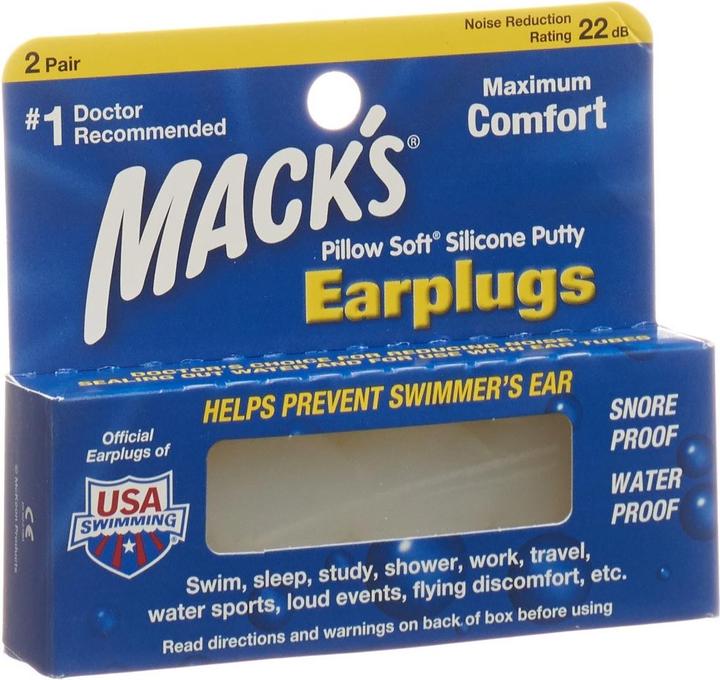

Earplug test: More than half provide good protection against noise
Noise can not only be annoying, it can also make you ill. One possible remedy: earplugs. Stiftung Warentest provides an indication of which ones are good in the latest test.
We all experience situations time and again in which we simply long for silence or at least a little more peace and quiet. Whether it's because your partner is snoring again, the children are playing loudly or the ground is being worked on with a jackhammer on the building site next door. Earplugs can provide relief at such times. But which ones actually block out the noise? This question was investigated by Stiftung Warentest.
The agony of choice
The selection of earplugs is huge, with more than 300 products. They differ not only in size, shape and texture, but also in how you can use and apply them. Stiftung Warentest took this diversity into account: it tested five mouldable pre-ear plugs, which seal the ear canal from the outside, and twelve in-ear plugs, which are inserted into the ear canal. Some can be used several times, others should be thrown away after a single use.
The most important test criterion is, of course, sound insulation, i.e. how well the earplugs block out unwanted noise. Scores were also awarded in the areas of wearing comfort, handling and labelling. The earplugs were also tested for harmful substances.
So quiet
When I hear earplugs, I automatically think of Ohropax. A classic example of when a brand has become a product. It is therefore not surprising that Ohropax is represented three times in the tested products. All three earplugs from the German company performed well, with those specifically for sleeping even coming out on top in the test.
The Mack's earplugs came in second place in the test. Both these and the test winners from Ohropax are reusable pre-ear plugs made from mouldable silicone.
A total of ten of the 17 earplugs tested received a "good" quality rating from Stiftung Warentest. Five others are at least "satisfactory", including the earplugs from Alpine and Noton.
The fact that they can't keep up with the best is either due to the results in terms of sound insulation or wearing comfort. It should be more than a consolation for Alpine that their earplugs are the best-selling hearing protection products and are also largely rated as good by the Community.
Caution, poison!
The earplugs from Noton, on the other hand, also get the warning finger for harmful substances: According to Stiftung Warentest, they are the only product tested to have a high content of dibutyltin compounds - i.e. highly toxic chemicals. At least the content is below the legal EU limit. But there are still deductions.
It's not far from the topic of harmful substances to the test loser. The Pluggerz earplugs are the only ones to fail the test and receive an "unsatisfactory". The content of phthalate plasticiser is above the permitted level. Apart from that, they also score just "sufficient" in terms of sound insulation. The Pluggerz were also offered by a marketplace retailer, but as of now you can no longer order them.
Each ear has its own plug
Our ears are just like us: individual and unique. For example, there are large and small ears and wide and narrow ear canals. It is therefore obvious that more than good sound insulation is needed for earplugs to be effective against noise. It is also important that the earplug adapts to the anatomy of the ear, i.e. that it fits well. After all, what good are earplugs with the best sound insulation if you don't feel comfortable with them? Exactly: nothing.
Which earplugs do you use when you need peace and quiet? The Community and I look forward to your tips in the comments.
44 people like this article
I'm a full-blooded dad and husband, part-time nerd and chicken farmer, cat tamer and animal lover. I would like to know everything and yet I know nothing. I know even less, but I learn something new every day. What I am good at is dealing with words, spoken and written. And I get to prove that here.




